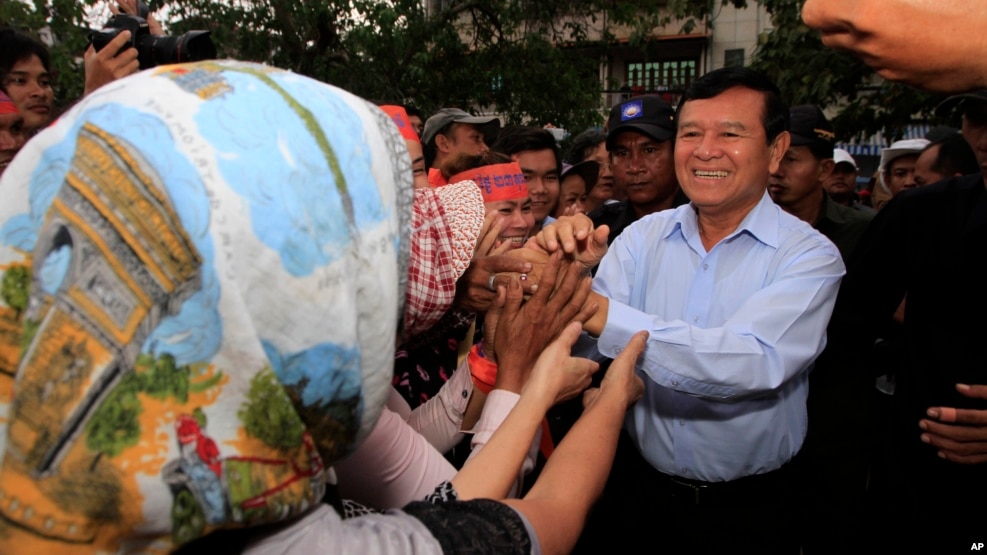
Parliament Rejects Opposition Criticism Over Sokha Vote
VOA | 2 June 2016
The CNRP said the CPP’s actions “contradicted the principle of
Article 51 of the Constitution, which states that powers are separated between
the legislature, executive and judiciary.”
PHNOM PENH —
In a statement on Sunday, the Cambodia National Rescue Party asked that parliament respect Kem Sokha’s right to parliamentary immunity, which prevents legal action against elected representatives unless there is clear evidence of a crime having occurred.
Cambodia’s Cambodian People’s Party-controlled parliament on Wednesday dismissed accusations from the opposition that it was ignoring due process by approving court procedures against the opposition’s deputy leader, Kem Sokha.
Parliament voted unanimously on Monday – despite an
opposition boycott of the session – to allow the Phnom Penh Municipal Court to
continue an ongoing investigation into allegations of defamation and that Kem
Sokha procured a prostitute, a minor offense under the country’s criminal code.
In a statement on Sunday, the Cambodia National Rescue Party asked that parliament respect Kem Sokha’s right to parliamentary immunity, which prevents legal action against elected representatives unless there is clear evidence of a crime having occurred.
The statement added that the CPP’s actions “contradicted the principle of Article 51 of the Constitution, which states that powers are separated between the legislature, executive and judiciary.”
On Monday, and amid street protests from opposition supporters, the 68 CPP lawmakers voted in favor of continuing the case against Kem Sokha, a lawmaker for Kampong Cham province, after he failed to appear in court for questioning on two occasions.
Defending the decision, Leng Peng Long, a parliamentary spokesman, said on Wednesday that “parliament has the right to express an opinion and make a decision independently, without being pressured or ordered by anyone.”
He added that the vote was made in-line with parliamentary procedure and national laws.
However, Son Chhay, chief opposition whip, said the decision was in contravention of the right to immunity, and that action should in fact be seen as an “obvious crime” worthy of investigation.
“Article 80 also discussed clearly about what an obvious crime was, meaning [we] talked about things that occurred in relation to violence, which must be stopped immediately in order to avoid affecting the lives of other people so on. It didn’t talk about the lawmaker refusing to appear at court as requested by the court to be witness,” he said.
Peng Long, however, said it was nothing to do with Article 80, as Kem Sokha had not had his immunity suspended and was being pursued for an “obvious crime”.
He added that in order to suspend the case, three quarters of all parliamentarians would need to vote for the courts to end their investigation.
Since Kem Sokha declined to attend court on two separate occasions under court subpoena, he could face a small fine as well as up to six months in prison if found guilty.
Following an attempt to arrest him on Monday, Sokha has been holed up at the CNRP headquarters in the capital.
Taing Sunlay, director of the Phnom Penh Municipal Court, on Wednesday said that the case was now in the hands of the investigating judge.
“I don’t know if he issued an arrest warrant or not,” he said.
Sam Sokong, a lawyer for Kem Sokha, said his legal team would continue to argue that parliament would need to vote to suspend Kem Sokha’s immunity before he could be arrested on suspicion of a crime.
“Parliament didn’t get a two-third vote, meaning the 68 voices didn’t meet the two thirds voice. Therefore, it didn’t comply with Article 80 of the Constitution, if we are making decisions based on the Constitution,” he said.


No comments:
Post a Comment